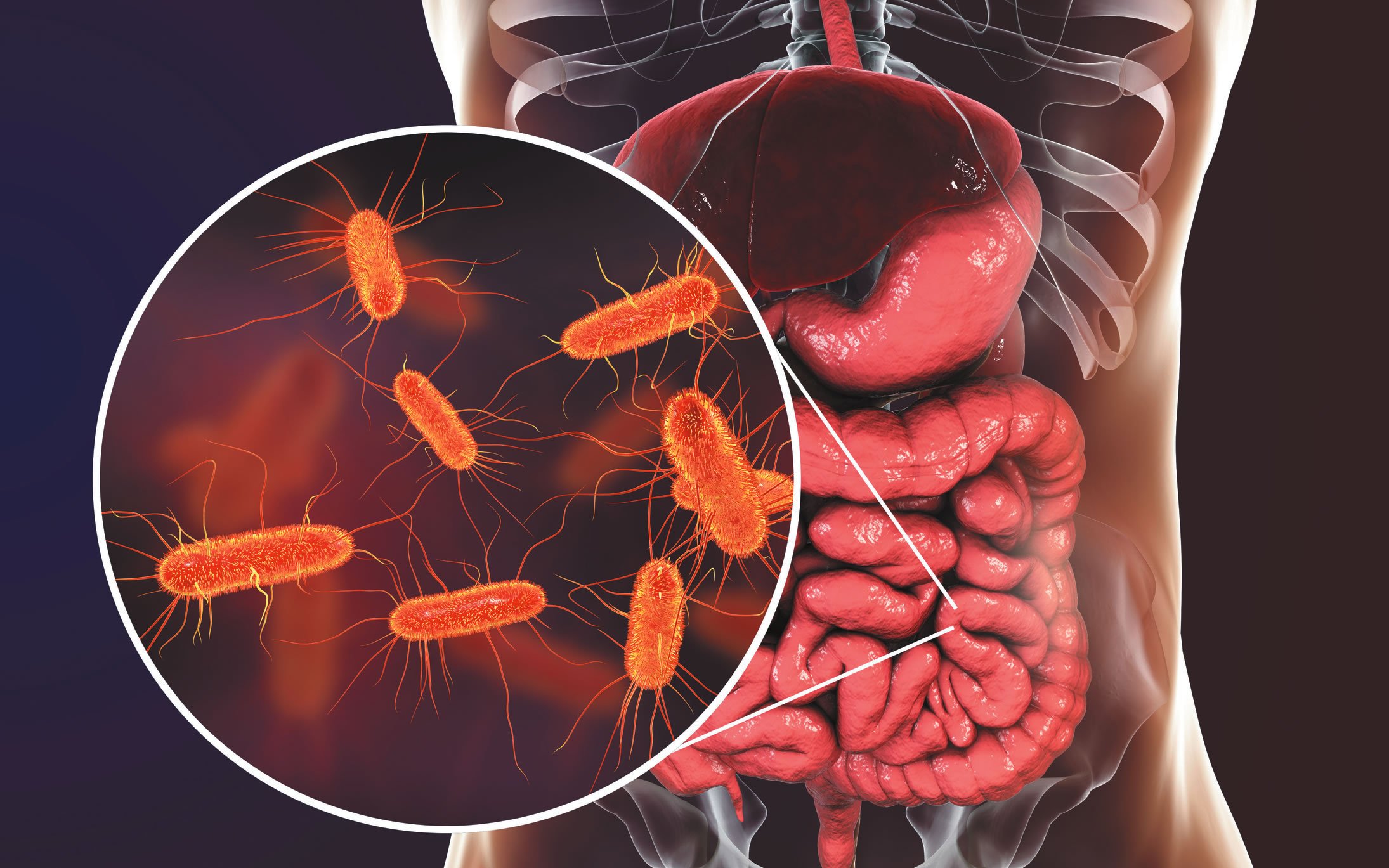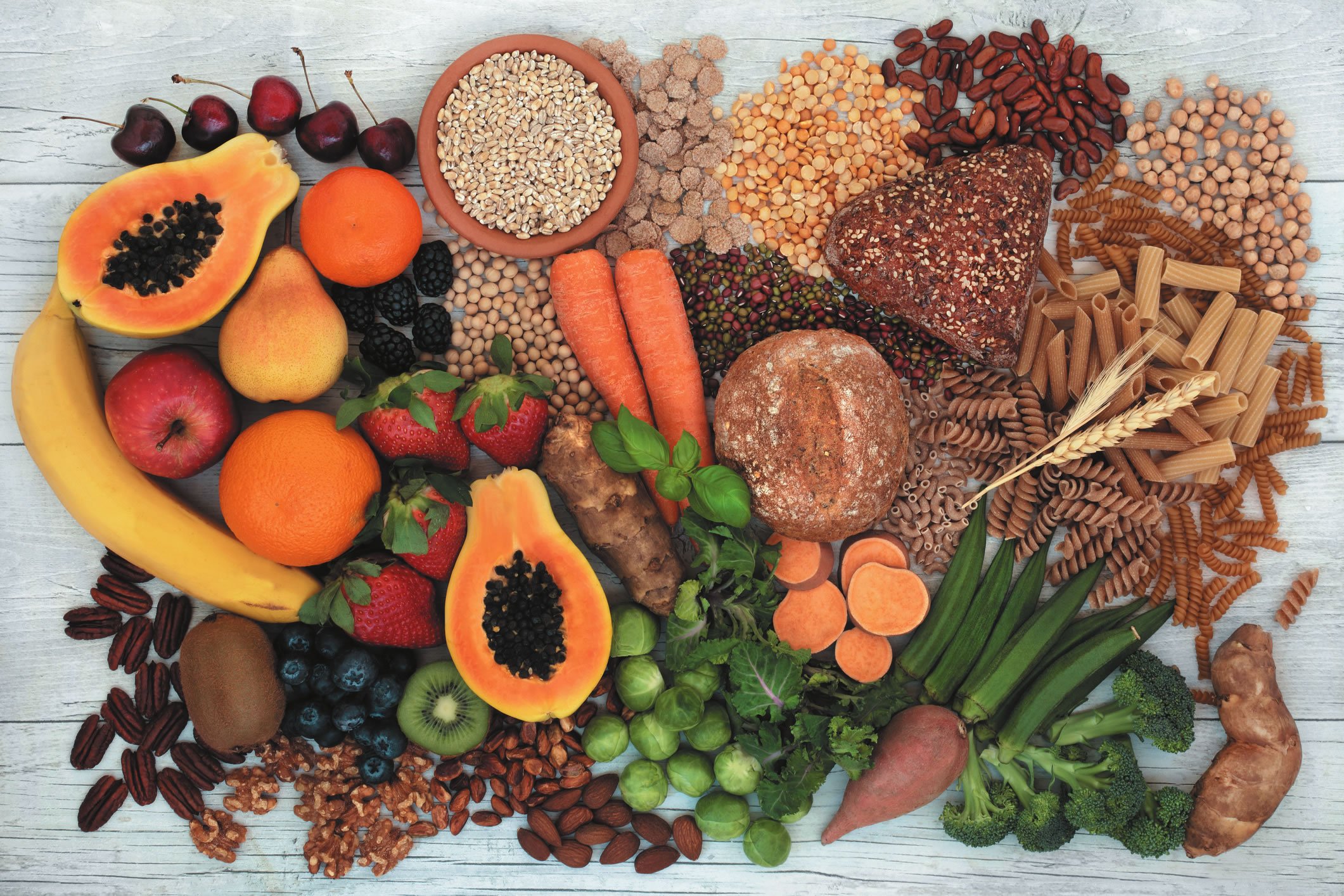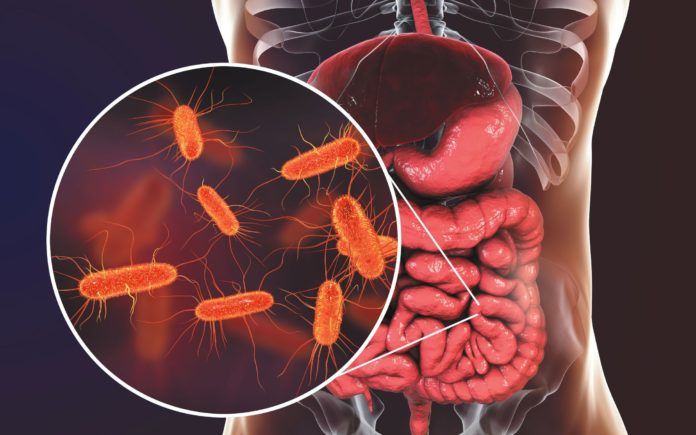Image © nilsz | Getty Images

The gut microbiota—a community of trillions of bacteria and other microbes that live in the human digestive tract—may have a powerful impact on human health. The study of the microbiota (or microbiome) is a major frontier in nutrition research, as scientists work to understand how these organisms interact with our bodies and the foods we eat. While work is just beginning in this exciting new field, it is hoped that someday soon we will understand how to take care of our gut microbes, so they can take care of us.
The World Within: Far from being parasites, the microbes that call our intestines home appear to be integral to our survival. They are involved in maintaining the integrity of the intestinal lining; they help protect against disease-causing organisms; and they may play roles in immune system function, energy metabolism, and even how our brains work. Emerging research indicates the gut microbiota may also interact with our metabolic processes to increase or reduce risk for a number of common diseases and conditions, including obesity, diabetes, cardiovascular disease, rheumatoid arthritis, cancer, and autism.
There are many challenges to studying the gut microbiota and the role it plays in our metabolism. Genes, dietary habits, environment, medication use, stress, and other factors all play a role in shaping an individual’s microbial community. Additionally, the interactions between these microbes and our bodies are complex, making this field of research difficult. Study results are, therefore, often inconsistent.
In randomized trials, fecal matter transplants (in which patients receive a new microbiome from a healthy donor) have improved chronic bacterial diarrhea caused by C. difficile and ulcerative colitis (an autoimmune condition characterized by inflammation of the large intestine). Otherwise, most of the evidence for links between intestinal microbiota and disease comes from lab studies, experiments in mice, or observational studies in humans. Such studies do not prove long-term cause and effect, but researchers are enthusiastic about the potential for this emerging field. “I see incredible promise in the growing findings on gut bacteria and a range of health outcomes,” says Dariush Mozaffarian, MD, DPH, dean of the Friedman School and editor-in-chief of Tufts Health & Nutrition Letter. “Many of the foods that we think of as healthy for us may actually be beneficial for our gut bacteria, who then pass along the good health to us.”
Our Gut Microbes, Our Health: Changes to the microbiota may be a contributing factor to, or a consequence of, various health problems. Scientists have found that the types and diversity of microorganisms living in the guts of people with conditions such as obesity, type 1 and type 2 diabetes, rheumatoid arthritis, autism, and lupus are different from that of people without these conditions. Many of these conditions are also associated with the presence of on-going, low-grade inflammation. Numerous pathways have been discovered by which gut bacteria participate in processes that promote or reduce systemic inflammation in their human host. For example, gut bacteria convert certain food components into molecules that cause the body to increase production of pro-inflammatory proteins. But bacterial fermentation of dietary fiber creates short chain fatty acids (SCFA), which are involved in anti-inflammatory processes (as well as lipid and glucose metabolism and gut permeability).
Bacteria have also been found outside the intestines. “Bacterial DNA is present throughout the digestive tract and related organs. For example, we see evidence of bacteria in the pancreas,” says Dominique Michaud, ScD, professor of public health and community medicine at Tufts University School of Medicine. “Our research is looking to see how these bacteria differ in people with and without pancreatic cancer.”
As we learn more, we may be able to use the microbiome as a diagnostic tool, and even modify our bacterial population through dietary changes, medications, or other means to improve treatment of disease.
Image © marilyna | Getty Images

New Frontiers: A look at your microbiome may someday be able to determine your risk for cancer or obesity, and specific changes to your diet could be prescribed to help treat cardiovascular disease by modulating your microbiome. Here are just a few examples of what your gut microbiota may be able to do for you:
-Cardiovascular disease: A 2008 study by Liu and colleagues, published in the International Journal of Systemic and Evolutionary Microbiology, found that some types of bacteria are elevated, while other types are depleted, in patients with atherosclerosis (hardening of the arteries), compared to those without atherosclerosis. Since that time, research has continued to look at a range of possible mechanisms for a role of gut bacteria in the development of heart attack and stroke. One promising pathway involves a molecule called TMAO (trimethylamine-N-oxide), a metabolite synthesized by gut bacteria from certain compounds found in red meat, chicken, fish, eggs, milk, and the body’s own bile acids. In laboratory and animal models, TMAO is associated with acceleration in rate of atherosclerosis. “Tufts researchers are currently involved in a study, together with colleagues at Cleveland Clinic where much of the translational work on TMAO has been done, to assess how this molecule may influence atherosclerotic risk in diverse populations,” says Mozaffarian. The potential to modify TMAO levels with dietary changes opens a promising new pathway for cardiovascular disease treatment.
-Obesity and diabetes: Diet and other lifestyle and environmental factors interact in complex ways to drive the development of obesity and type 2 diabetes, and it appears that gut microbes have a role to play as well. Obesity was first reported to be associated with a change of gut microbiota in 2005. Obese mice appeared to have less of one species of bacteria, and more of another species, than their lean counterparts. Since then, while one meta-analysis found no association between the composition of the gut microbiota and obesity in humans as assessed by body mass index (BMI), several studies have found that subjects with less microbial diversity had higher BMI, higher fat mass, and lower insulin sensitivity. Studies in mice support the hypothesis that the gut microbiome plays a role in the development of obesity and diabetes. In a human trial, patients with type 2 diabetes were given oligofructose (a prebiotic sugar that encourages the growth of gut bacteria) for 23 months. These individuals showed increased weight loss and improved glucose control compared with the placebo group. In two recent meta-analyses of small randomized trials of probiotics (active bacterial cultures provided in the diet, for example from yogurt), patients receiving probiotics showed lower body weight, BMI, fasting glucose, fasting insulin, and insulin resistance. “Together, these studies suggest an important role of the gut microbiome in the development of obesity and type 2 diabetes, and further research will help elucidate the specific bacteria and metabolites that may be involved,” says Mozaffarian.
-Cancer: “If we can identify certain bacteria that tend to be present where a cancer is present, perhaps we can use that information to reduce cancer risk, aid in early diagnosis, or improve treatment,” says Michaud. “I’m excited about the possibility of developing a screening tool that uses the microbiome to identify people at high risk for pancreatic cancer, so they can be monitored more closely. If this devastating disease is caught early, perhaps we could reduce fatality rates or prolong life.” There is also a lot of interest in how bacteria might modulate the effectiveness of chemotherapy. “There is some evidence that the make-up of an individual’s microbiome might impact how well he or she responds to drug therapy,” says Michaud. Microbiota might even be involved in cancer prevention. Researchers at Tufts’ Jean Mayer USDA Human Nutrition Research Center on Aging recently published a study in the International Journal of Cancer that suggests certain bacteria can block the development of colon cancer in mice.
Someday, we may have treatments for disease that are personalized to our own microbiota; use prebiotics or probiotics to modify our gut microbiota to help with weight loss or disease management; take capsules containing microbiota from healthy individuals to correct imbalances in our own; or adjust our diets based on the microbes that live in our guts.
Says Michaud, “It is very exciting to consider the possibility that changing someone’s microbiome could improve their health.”

Dietary intake has a big impact on gut microbiota composition and function. Here is what we know so far about keeping the gut microbiota happy and healthy:
-Eat fiber-rich foods. Fiber is a prebiotic that may encourage healthy microbes. Gut microbes turn fiber into SCFAs, which may have anti-inflammatory and other helpful roles. It has been suggested that low fiber diets change the functional capacity of the gut microbiota, potentially contributing to obesity and related complications. Enjoy fruits, vegetables, nuts, beans, and whole grains daily.
-Eat microbes. Enjoy probiotic foods with live bacterial cultures, such as yogurt.
-Try fermented foods. Un-heat-treated fermented foods, such as fresh sauerkraut or kimchi, hard cheese, and kambucha tea contain live microorganisms.
-Dont overuse antibiotics. Antibiotics are life-saving drugs, but some kill off the beneficial bacteria along with the harmful. Eating probiotic foods and taking probiotic supplements while on antibiotics may help support beneficial gut microbe populations and are recommended when children take antibiotics.
-Stay tuned. Keep an eye on this exciting field!

























What about h pylori. Any new news
Really impressive information and so helpful to analyzing ones diet and health just based on ones digestive system. Thanks.
This is a fascinating article. As I handle the stress of being an essential worker in the pandemic, I have been naturally transitioning from a diet of protein and fruits/vegetables, toward a diet that includes whole grains, beans. and carbohydrates. Thanks for this information.